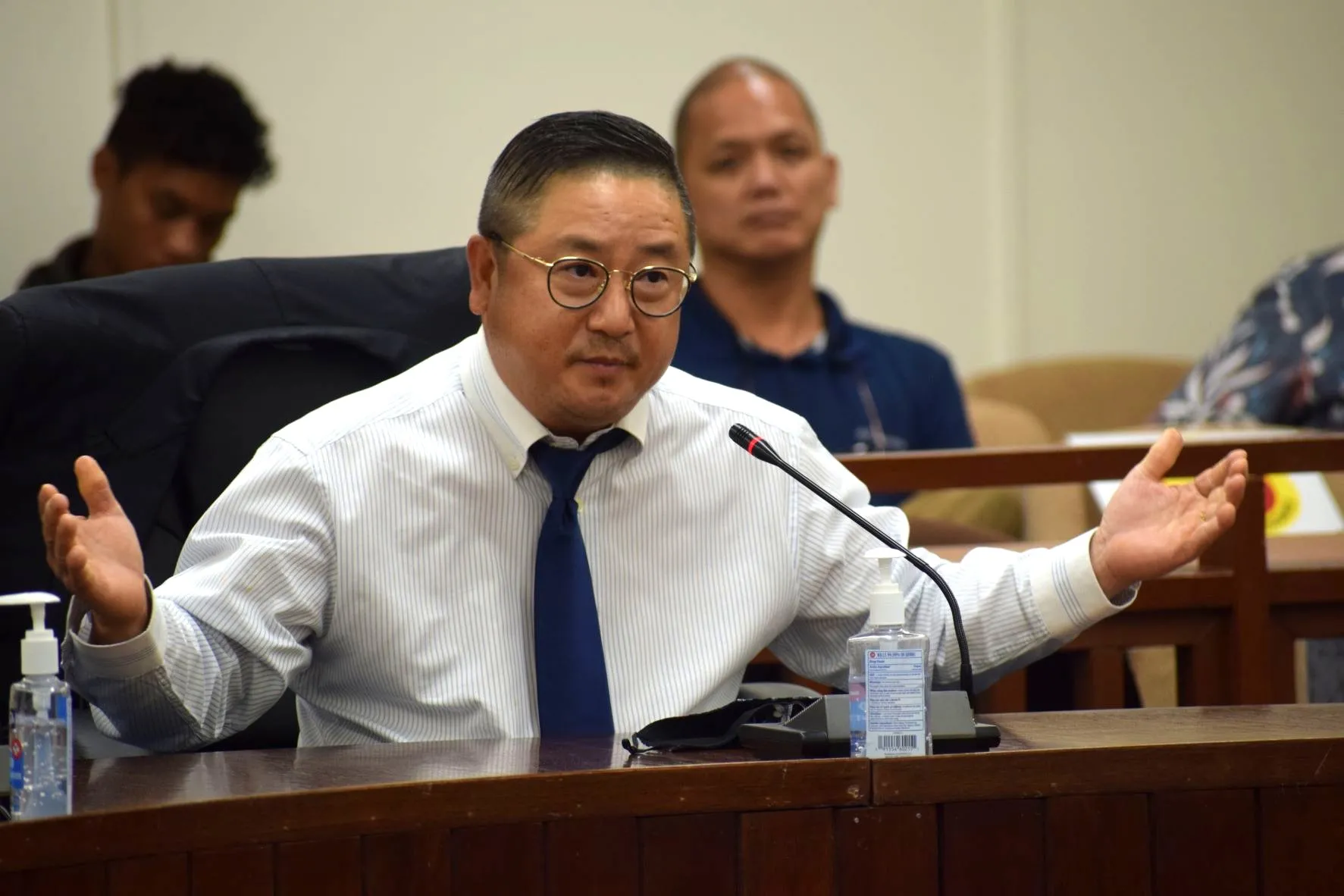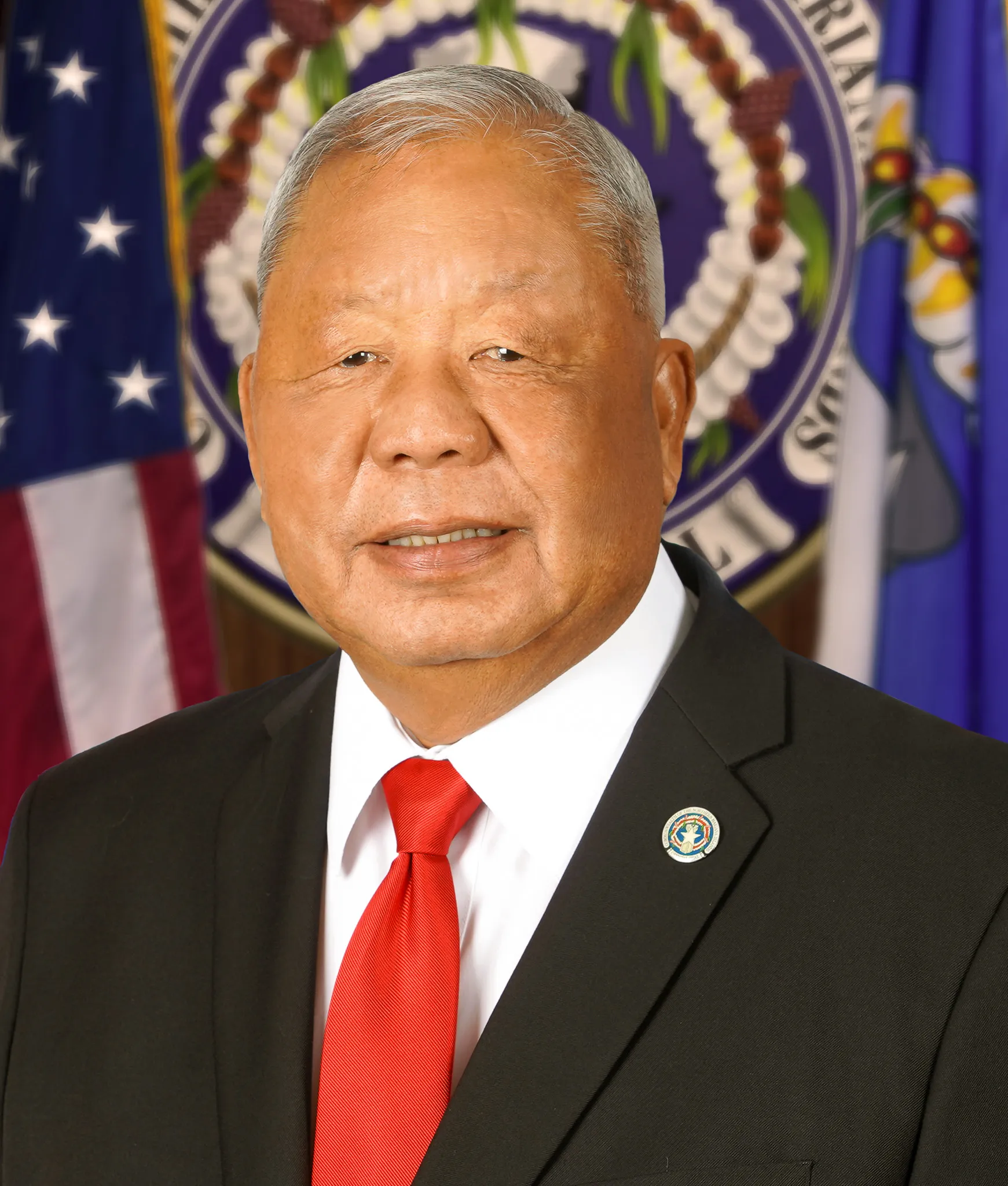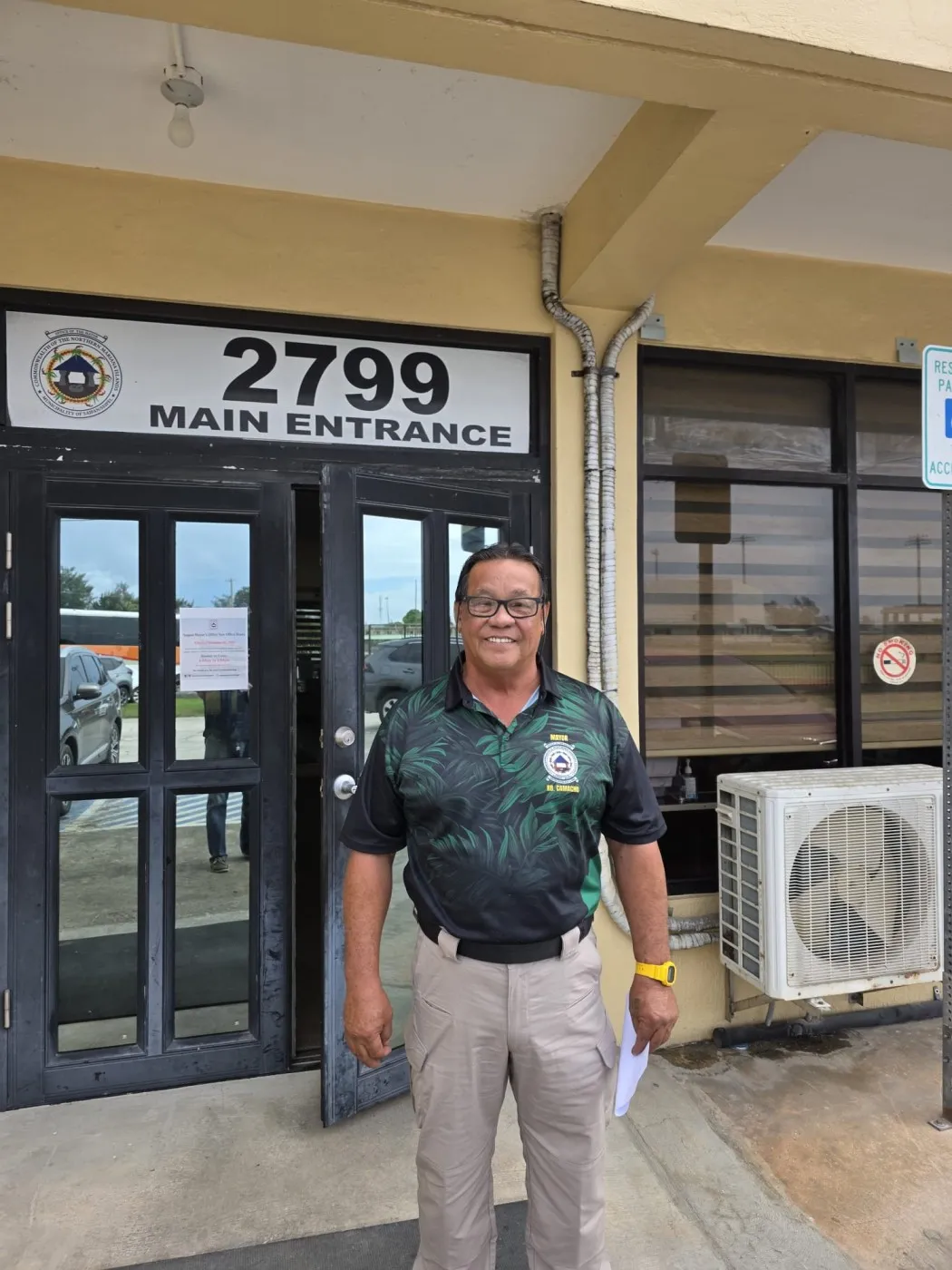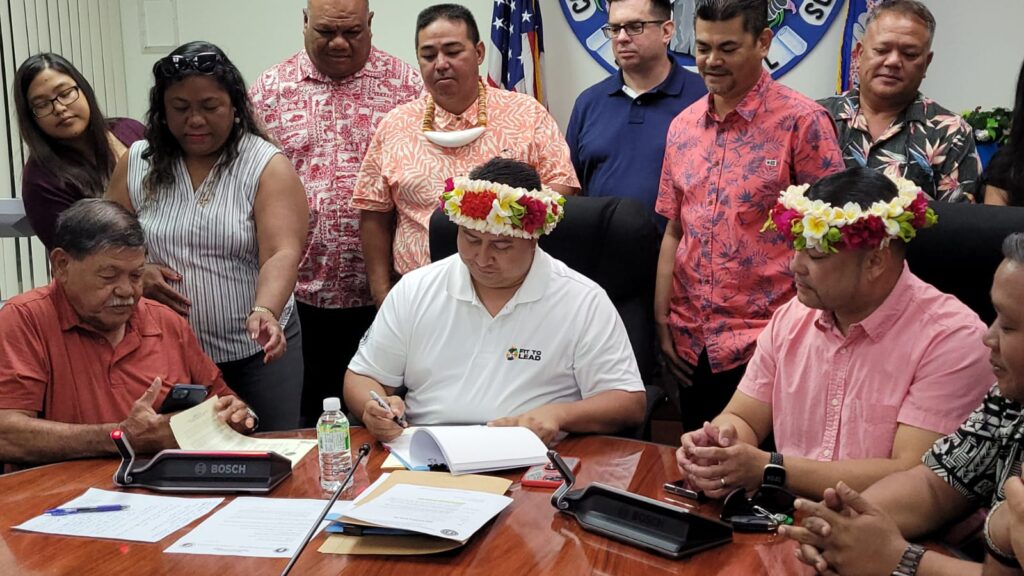FOLLOWING two days of negotiations between the House of Representatives and Senate conference committee members, both chambers passed a new version of the fiscal year 2023 budget Friday afternoon.
The following day, which was the first day of FY 2023, Gov. Ralph DLG Torres signed House Bill 22-116, House Draft 2, Senate Substitute 1, Conference Committee Substitute 1 into law with some line-item vetoes.
As originally proposed by the governor and the Senate, the new budget will source 80% of personnel costs from local revenue and 20% from American Rescue Plan Act funds. The House proposal to impose a tax hike on tobacco products and sweetened beverages wasn’t included in the new budget.
Moreover, there will be no cuts to Tinian’s full-time equivalent positions as proposed by the Senate.
In return, the administration, through the Department of Finance, provided a written assurance to the Legislature regarding the availability of $7.2 million from the Community Disaster Loan as Medicaid match for FY 2023; and $13 million to cover the 25% of the retirees’ benefit.
Finance also assured “all three…branches of our government that they will receive operational funds…in FY 2023, at the same level as FY 2022 appropriation.”
The new law, P.L. 22-22, identifies $150.4 million in budgetary resources for FY 2023.
Of this amount, over $46 million, including $36 million for the Settlement Fund, are allotted for debt service.
The total revenue and resources available for government appropriation is $109.78 million, which includes $5.4 million for the Department of Public Lands.
In FY 2022, the total revenue and resources available for government appropriation amounted to $103.38 million, including $4.48 million for DPL.
Utter disappointment
In his transmittal letter to the Legislature, the governor expressed his “utter disappointment in the House Majority Leadership’s failure to expeditiously pass this Budget bill…which has unnecessarily caused many government employees concern and worry. Additionally, I commend the members of the Senate for passing their version of the Budget bill in a timely manner in order to safeguard our government employees’ jobs and livelihoods. I also want to thank the Senate for their decision to adhere to our existing ARPA spending plan which was submitted and approved by our federal partners. Furthermore, I thank the House Majority for their understanding and acceptance of the ARPA requirements and its limitations with regard to spending mandates and authorities.”
The governor also assured community members that his administration “has never had issues with meeting our Medicaid obligations in the past, and that we have always allocated funding to support our Medicaid recipients in the right way. Similarly, my administration has always and will continue to safeguard our retirees’ pensions as is our responsibility to our manamko’. I thank our community and especially our government employees for their patience in the passage of this important legislation.”
Line-item vetoed
In signing Public Law 22-22, Gov. Torres vetoed several provisions, beginning with one that would have required the mayors of Rota and Tinian to use a purchase card issued through e-procurement to pay outstanding vendor billings in a timely manner.
Torres said these conflicts with existing procurement regulations and processes already in place.
Section 602(a) would have restricted new or vacant positions to be filled in the executive branch, apart from positions essential for the delivery of public services, such as the Department of Public Safety and the Department of Fire and Emergency Services, for each senatorial district and other essential positions determined by the governor. Should a need arise for an essential employee, however, furloughed employees would be the first priority.
The governor vetoed this provision, calling it “problematic” because it limits the executive branch’s ability to hire employees, especially in the beginning of a new fiscal year.
Section 602(b) stated that, notwithstanding any law or regulation to the contrary, if a Notice of Personnel Action has been executed by the hiring agency or a candidate to fill the vacancy has been selected or action has been initiated to fill the position by any department or agency and filed at the Office of Personnel Management on Rota, Tinian, or Saipan, the vacant position shall be considered as processed and to be filled. The renewal of the contract for an existing employee shall not be considered as creating a vacant position.
The governor said he vetoed this provision because it is “vague and ambiguous, thus has the potential to delay and bring forth unnecessary hiring burdens onto government departments or agencies when seeking to fill vacant positions.”
The governor also vetoed several provisions that would have prohibited the reduction of funds appropriated to the judicial and legislative branches without legislative approval.
He said these proposed requirements circumvent constitutional processes for enacting laws and violate the separation of powers doctrine.
Moreover, he said they conflict with existing provisions of law and hinder the government’s ability to make necessary adjustments in cases of emergency.
Section 712 on reporting requirements would have required expenditure authorities to submit a fund status report to the presiding officers of the Legislature within 30 days after the end of each quarter.
Torres said this requirement is unnecessary and redundant as the secretary of Finance is already statutorily mandated under the Planning and Budgeting Act to report fund statuses 30 days after the end of each quarter.
Section 713 states that the expenditure of funds in excess of appropriations and reprogramming established by this Act is a violation of the Planning and Budget Act.
Gov. Torres vetoed this provision because it “unnecessarily addresses remedies for violations of spending limits already provided by the Planning and Budgeting Act.”
He likewise vetoed a provision that required the administrator of the CNMI Scholarship Office to provide a report to the presiding officers of the Legislature within 30 days after the end of each quarter, noting that this provision already exists under 3 CMC 1015(k).
Moreover, the governor vetoed a provision that requires all Commonwealth educational entities that receive Commonwealth Worker Fee Funds to submit quarterly reports to the presiding officers of the Legislature, the chair of the Senate Committee on Fiscal Affairs, and the chair of the House Committee on Ways and Means.
The governor noted that strict reporting requirements already exist under U.S. Public Law 115-218.
The governor extended his appreciation to the Legislature for its submission of a balanced budget for FY 2023, and for avoiding a partial government shutdown.
“May we continue to work for the improvement of the quality of life for all who call the CNMI their home, and for the betterment of the entirety of our Commonwealth,” he said.
Watch the livestream below:
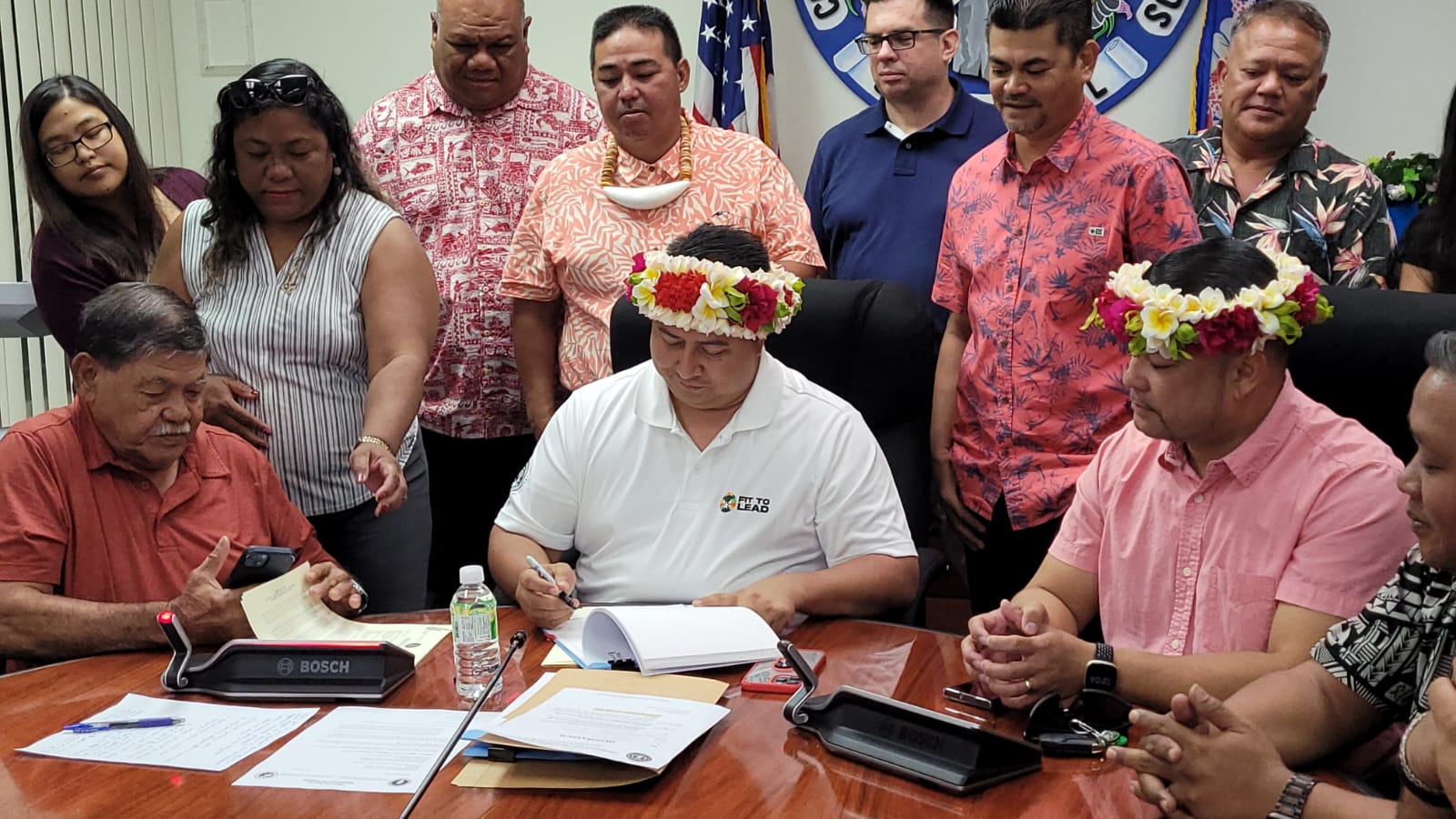
Gov. Ralph DLG Torres signs the FY 2023 budget bill into law, Saturday noon, Oct. 1, 2022.

Gov. Ralph DLG Torres poses for a photo with Senate Floor Leader Vinnie F. Sablan, first lady Diann T. Torres, Secretary of Finance David DLG Atalig, Sen. Victor B. Hocog, Rep. Roy Ada, House Minority Leader Angel Demapan, Rep. Joseph Leepan T. Guerrero and other administration officials and staff following the signing of the fiscal year 2023 budget bill into law on Saturday noon at the governor’s office.




